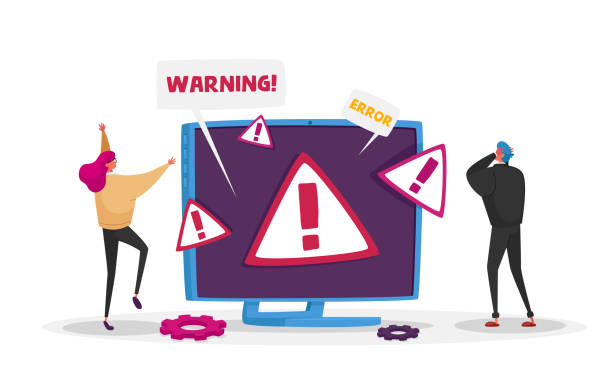|
|
|
|
|
Creation date: Mar 27, 2023 1:08am Last modified date: Mar 27, 2023 1:08am Last visit date: Nov 26, 2024 3:11am
4 / 20 posts
Mar 27, 2023 ( 1 post, 3 replies latest Dec 26, 2023 ) 3/27/2023
1:08am
Kristie Vanhoy (kristievanhoy)
As more businesses migrate their operations to the cloud, the issue of cloud security has become increasingly important. Cloud computing offers a wide range of benefits, including cost savings and scalability, but it also introduces new security risks. In this article, we will discuss the best practices for keeping your data safe in the cloud.
What is Cloud Security? Cloud security refers to the measures taken to protect cloud-based infrastructure, applications, and data from unauthorized access, theft, and cyberattacks. Cloud security includes a wide range of technologies, processes, and policies that work together to secure cloud computing environments. Best Practices for Cloud Security
Choose a Secure Cloud Service Provider The first step in securing your cloud environment is choosing a reputable and secure cloud service provider (CSP). Look for a CSP that has a strong track record in cloud security, provides regular security updates, and has a robust security infrastructure in place. Ensure that the CSP has adequate security controls and encryption mechanisms to protect your data. For further info, get in touch PSee Solutions.
Implement Strong Password Policies Weak passwords are one of the leading causes of security breaches in cloud computing. To ensure the security of your cloud environment, implement strong password policies that require users to create complex passwords and change them regularly. Multi-factor authentication (MFA) should also be enabled to provide an additional layer of security.
Use Encryption Encryption is a critical component of cloud security, as it helps protect your data from unauthorized access. Ensure that your cloud service provider offers encryption options for data in transit and at rest. Encrypt sensitive data before storing it in the cloud, and use secure protocols for data transfer.
Keep Software and Applications Up-to-Date Hackers often exploit vulnerabilities in software and applications to gain unauthorized access to cloud environments. To prevent this, ensure that all software and applications in your cloud environment are kept up-to-date with the latest security patches and updates. Consider implementing automated updates to ensure that security patches are applied as soon as they become available.
Monitor Your Cloud Environment Continuous monitoring of your cloud environment is critical to detecting and responding to security threats. Use tools that allow you to monitor your cloud environment in real time and detect any unusual activity. This includes monitoring user activity, access logs, and system logs.
Implement Access Controls Access controls are critical to ensuring that only authorized users have access to your cloud environment. Use role-based access controls (RBAC) to define user roles and permissions and restrict access to sensitive data to only those users who require it. Additionally, limit the number of users with administrative privileges, and ensure that access credentials are managed securely.
Conduct Regular Security Audits Regular security audits are an essential component of cloud security. Conduct regular audits to identify any vulnerabilities in your cloud environment and take steps to address them. This includes reviewing access controls, monitoring logs for unusual activity, and conducting vulnerability assessments.
Develop a Disaster Recovery Plan Develop a disaster recovery plan that outlines how your business will respond to security incidents and data breaches in the cloud. This should include steps for notifying customers, stakeholders, and regulatory bodies, as well as steps for restoring data and applications.
Educate Your Employees Employee training is a critical component of cloud security. Educate your employees on the importance of cloud security, and provide them with training on how to identify and respond to security threats. This includes training on password policies, data encryption, and how to handle sensitive data.
Conclusion Cloud security is a critical component of any cloud computing environment. By implementing the best practices outlined above, businesses can ensure the security of their cloud-based infrastructure, applications, and data. However, it is important to remember that cloud security is an ongoing process, and businesses must remain vigilant in their efforts to protect their cloud environment from evolving security threats.
4/26/2023
11:46am
Chal Foarke (charlesfoarke): edited 4/29/2023 11:08am
Cloud security is crucial for businesses and organizations that use cloud services to store and process their data. Cloud security breaches can result in significant financial losses, reputational damage, and legal consequences. To keep your data safe in the cloud, it's essential to follow best practices such as using strong passwords, enabling two-factor authentication, and regularly updating software and systems. In addition to these best practices, a fully managed open-source Apache Kafka® service can help you ensure the security of your data in the cloud. Kafka is a popular distributed data streaming platform that allows you to process and store large amounts of real-time data. At Double Cloud, they offer a fully managed Kafka service that provides distributed delivery, storage, and real-time data processing in a secure and reliable manner. With their managed Kafka service, you can leverage the power of Kafka while leaving the management and security of the platform to their team of experts. To learn more about the managed Kafka service, visit https://double.cloud/services/managed-kafka. Protect your data and ensure its security in the cloud with the right practices and tools. 12/26/2023
4:26am
Maximilian Hohenzollern (maximilianhohenzollern)
Cloud storage systems are still unreliable though. In any case, all the data is on the Internet, so how will this help save it? 4:43am
Bill Shiphr (billshiphr105)
The point is not that you upload all your data, important documents, or completely connect the domain of your organization or your business to the cloud platform, but that they are additionally encrypted and cannot be decrypted. I advise you to read more about the Beeble platform, which provides such solutions. You can find more information on the website https://beeble.com/. By the way, you can try it for free. You only need to pay if you need additional features. |

